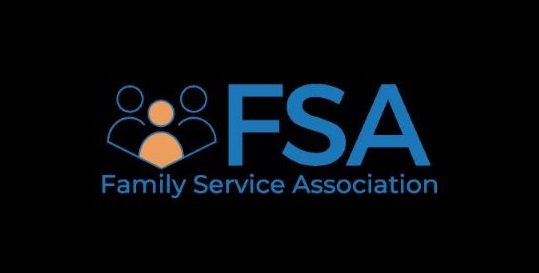Our Journey in Becoming a Trauma Informed Organization
Through the generous funding and support from Kaiser Permanente, FSA began its journey into becoming a trauma-informed workplace. After two years of agency-wide efforts to better understand trauma and its impact, Family Service Association is excited to share its progress, accomplishments and future plans.
Trauma informed care can be defined in many ways, but simply put, it’s an approach that recognizes the prevalence and widespread impact of trauma, as well as the potential paths for healing. It requires a shift in our mindset from “What’s wrong with you?” to asking, “What happened to you and how can I help?”
The core of FSA’s mission and services have always reflected a philosophy of care and a compassionate approach in serving the Inland Empire community. But over the past year, the Agency was able to take this to the next level by integrating a trauma informed framework into its programs and services. FSA partnered with one of the leading organizations in the Nation, SaintA to obtain guidance, support, and professional development on our transformational journey. SaintA of Milwaukee, Wisconsin has studied and researched trauma for over twenty years and developed a curriculum titled the Seven Essential Ingredients (7ei) of Trauma Informed Care. The primary source of content for 7ei comes from Dr. Bruce Perry’s clinical research and practice focusing on the long-term effects of trauma in children, adolescents, and adults. As one of the leads ofthe Child Trauma Academy, Dr. Perry is widely regarded as one of the world’s foremost experts on how to understand and help people recover from trauma and other forms of adversity.
Building a foundational awareness and understanding of trauma-informed approaches was FSA’s first objective and step taken in our journey. SaintA delivered a series of introductory trainings on the core, fundamental concepts of trauma informed care for FSA’s entire workforce of more than 300 staff members. The initial trainings highlighted the prevalence of adverse experiences in our communities and the difference between trauma and adversity, the physiological consequences and physical ailments associated with trauma, and the power that a shift in perspective can bring towards healing. These trainings were interactive and involved discussions, reflections, and questions throughout the various segments. A portion of the training was dedicated to understanding historical and generational trauma and the racism, discrimination, and oppression that groups of people have experienced throughout history. The trainings and content were well-received by employees and highly-rated in post-training evaluation measures. Many staff members were interested in having additional trainings and becoming involved in the planning process. FSA looks forward to empowering its entire workforce to be part of the transformation.
SaintA’s CEO, Ann Leinfelder Grove joined FSA’s Child Development Training and highlighted the science of early childhood development in neurobiology. She shared a powerful message: “Trauma informed care means appreciating and understanding that helping occurs in relationships. People help people, not programs. Even the very best programs are only as good as the people engaged in the work.”
After the initial introductory training, FSA coordinated a series of department-specific trainings for staff who primarily engage with seniors, children, colleagues, and families that are seeking therapy. Our team worked closely with SaintA to develop curated content for the various groups of staff members. For instance, the targeted training for FSA’s Child Development Department heavily focused on childhood trauma and its relationship to a multitude of negative health and social outcomes. It also introduced various trauma informed interventions that could enhance emotional and behavioral regulation for children. Staff participated in case scenarios and critical-thinking exercises during the training to support them in their day to day roles engaging with young children and their families.
Read more about Stephanie Soto’s experience and the experience of other Team Members by following us on Facebook, Instagram, and Twitter.
A pivotal step in our trauma-informed journey was the planning and completion of a training targeted for FSA Administration staff members. Unlike other departments in the Agency, this group of employees interact with colleagues more frequently than with community members. Our team of about 45 employees explored strategies that support a safe working environment and prevent secondary traumatic stress in the workplace. As FSA continues to adopt a trauma-informed organizational culture, we plan to prioritize staff wellness by creating a physically, socially, and emotionally safe environment for all staff.
In looking back at the past year, we are grateful for our staff’s willingness and excitement to participate in trainings and discussions. Becoming trauma informed requires a significant time commitment for all employees throughout the Agency and we are thankful for their steady support. We are excited to undertake the next phase on this journey by officially becoming certified to train the Seven Essential Ingredients (7ei) model. As a certified organization in the 7ei curriculum, FSA will develop a sustainable network of trainers who can provide ongoing training and resources for staff, community members and professionals. FSA is partnering with other community-based organizations in the region and extending an invitation for community leaders to become certified the 7ei curriculum alongside our team members. Our goal is to develop a local knowledge base that can best serve various communities throughout the Inland Empire, such as faith-based groups, homeless populations, child-serving organizations, and more.
Becoming a trauma informed organization is a fluid process without a completion date. As FSA continues to make strides in becoming trauma-informed, we are confident that these efforts will inspire and nurture a community-wide transformation.











